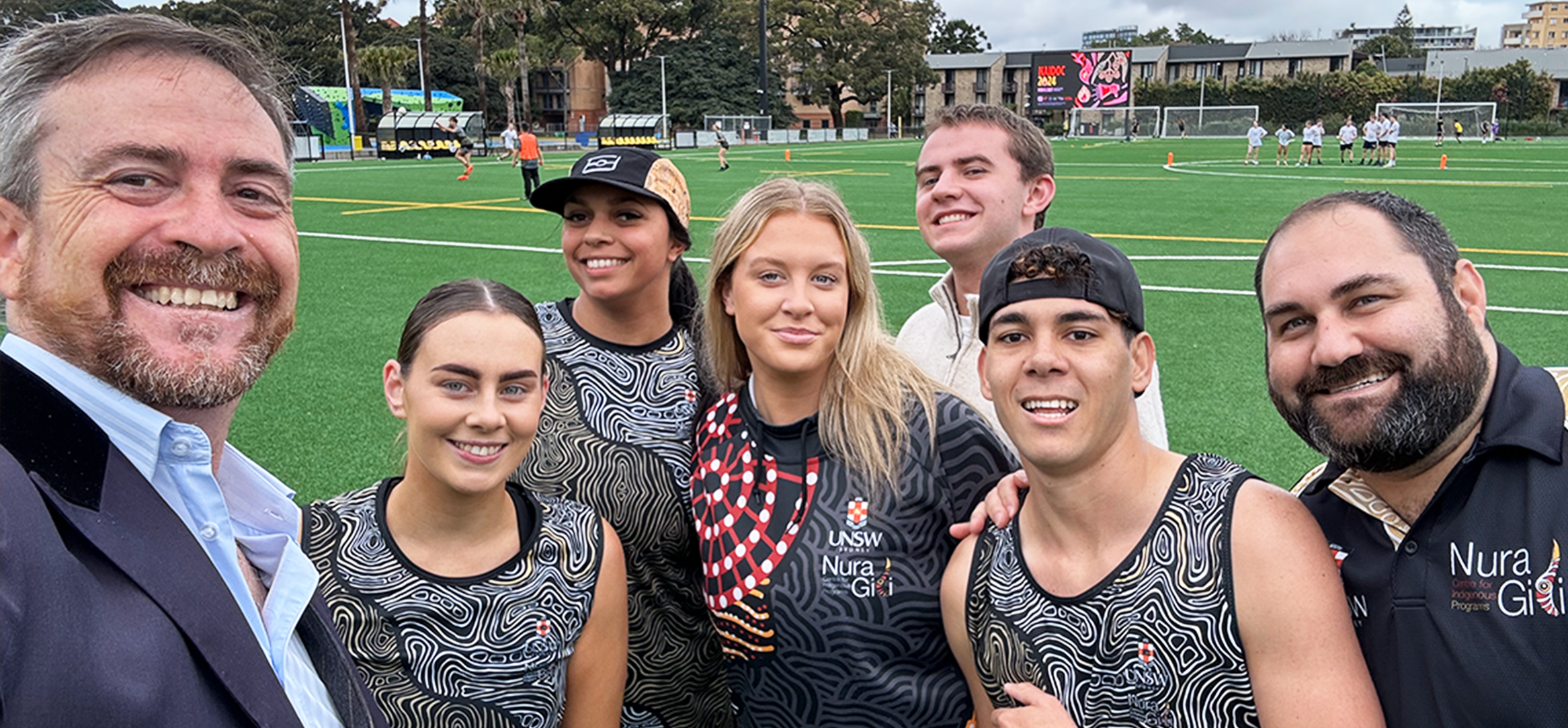
Dear colleagues
UNSW is 75! Last Monday, 1 July, marked 75 years since UNSW was formally established as the New South Wales University of Technology. It’s remarkable how much we have achieved in that time thanks to our dedicated and engaged community of students, staff, alumni and partners. Last week’s Winter Warmers events were a fantastic way to celebrate this milestone and thank you all for your contributions to our wonderful University.
It was an incredible turn out, with almost 1200 registrations for each day of Winter Warmers. I’m told there were 2586 donuts (my favourite) handed out over the two days. The soup, cupcakes and mulled wine were also popular! I was delighted by how many people came and I really enjoyed the opportunity to have so many casual but inspiring conversations, learning more details of the many incredible activities that go on across the University – and about colleagues’ work and passions. I left the afternoon with pride and awe in our community (and perhaps overfilled on donuts).
When UNSW was established in 1949, the aim was to increase access to educational opportunities and provide more of the skills NSW needed to solve big challenges and enable our society to progress in the turmoil following World War II. Seventy-five years on and UNSW is a world-leading university still driven by our mission to serve the public good through learning, teaching, research and genuine engagement with the world around us.
My sincere thanks to all of you for your commitment to this mission and congratulations on 75 remarkable years!
A special thank you to the Venues and Events team for the fantastic Winter Warmers events. Further celebrations to mark UNSW’s 75th birthday are scheduled for coming months, with activities across campus for students, staff, alumni and the broader community to enjoy.
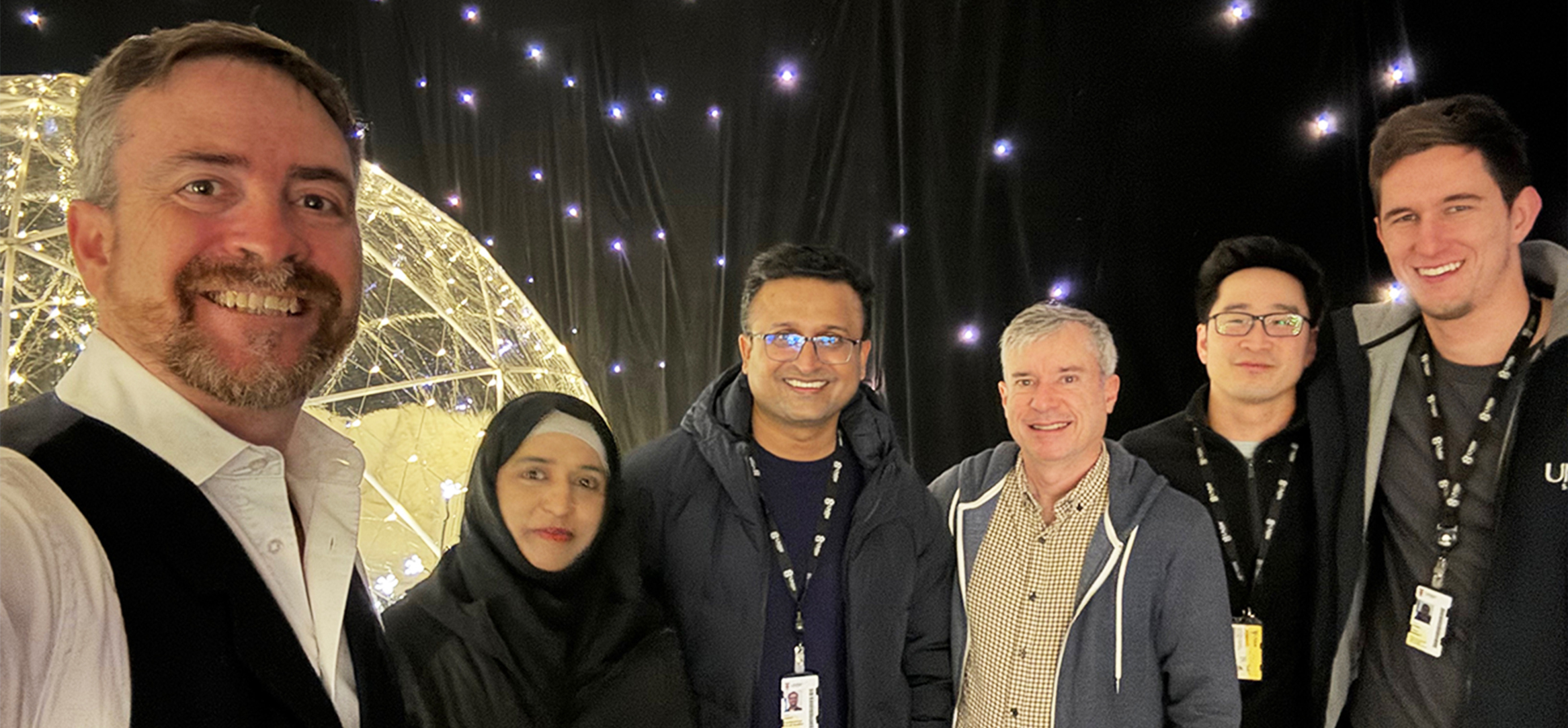
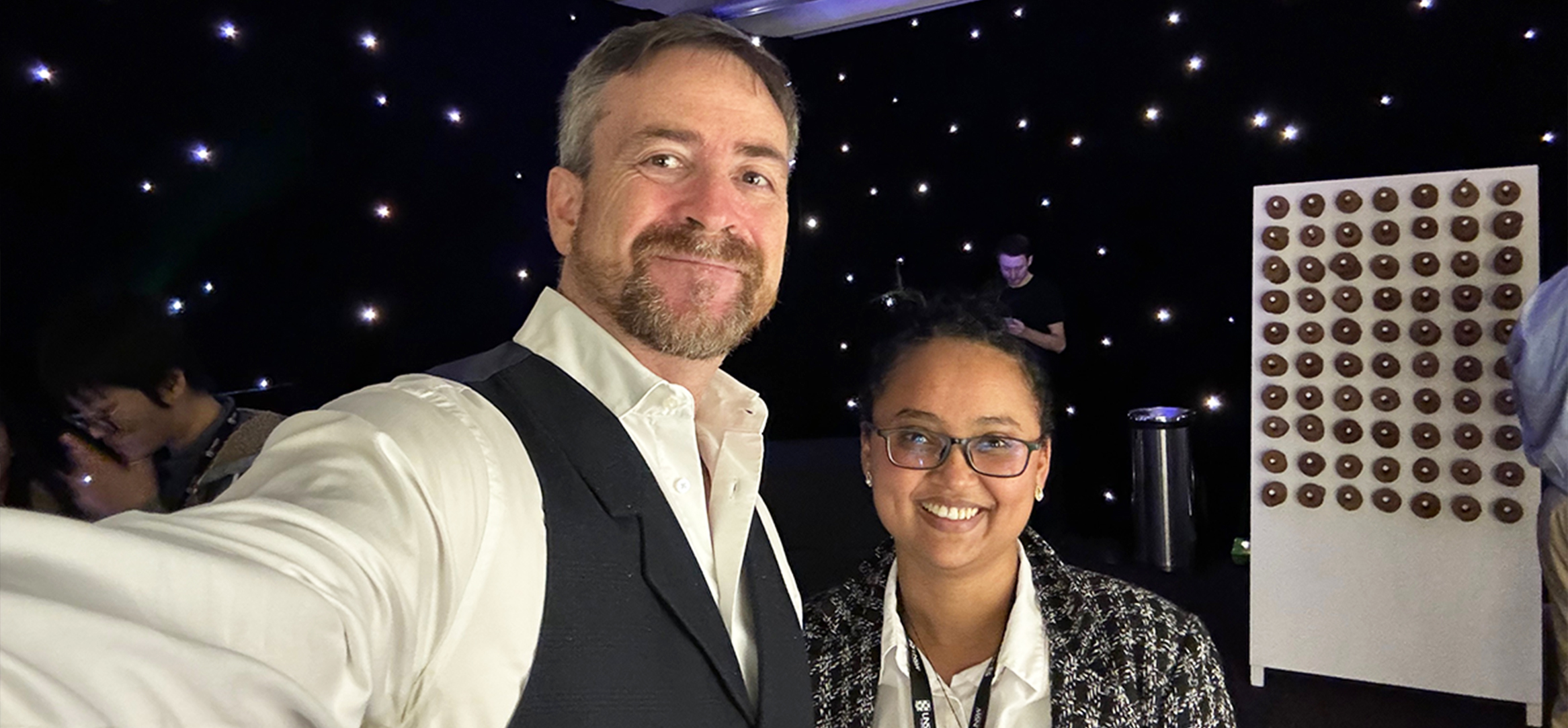
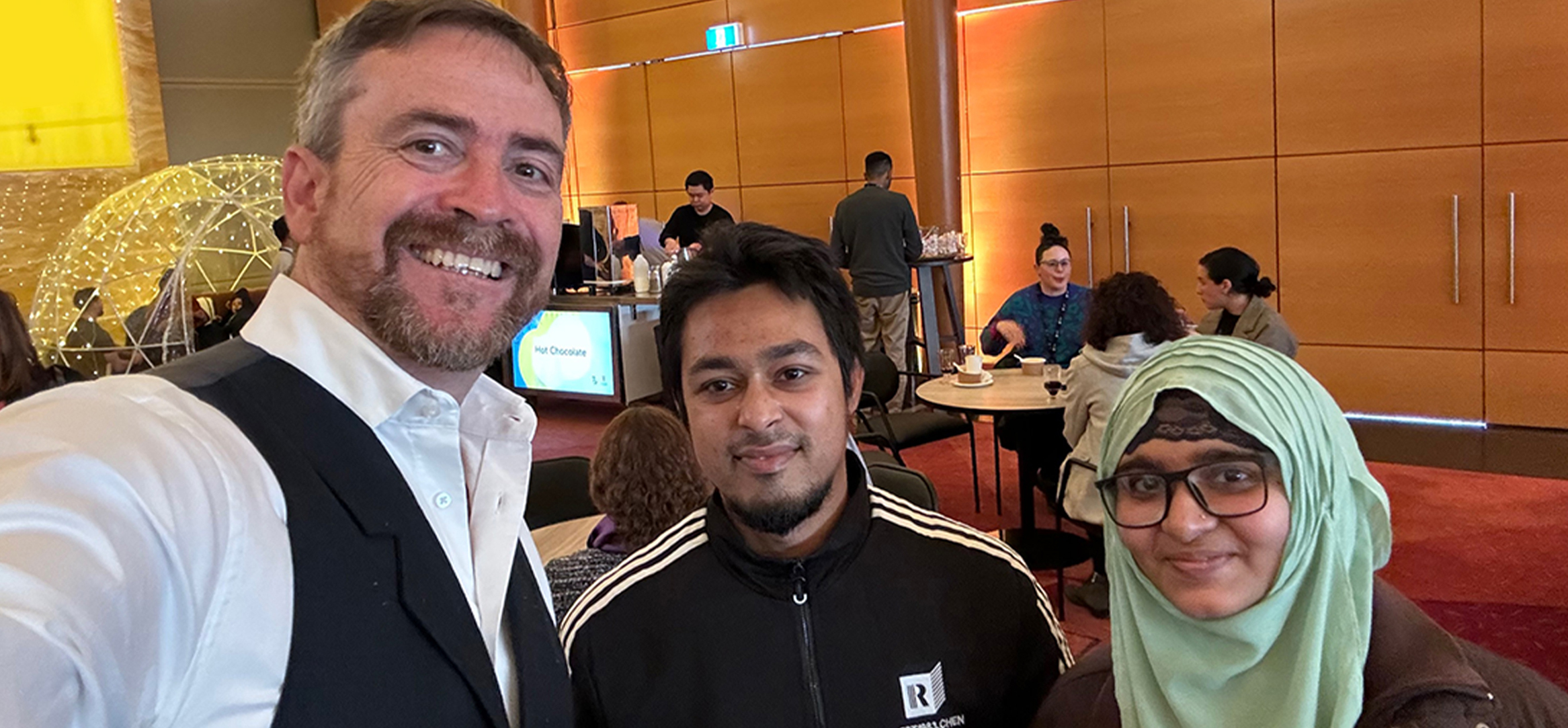
Government relations
Members of the University Leadership Team are liaising with the federal government regarding its announcements in the Federal Budget about managing numbers of international students studying in Australia. Last week, I travelled to Canberra with Vice-President Societal Impact, Equity and Engagement Professor Verity Firth for further discussions with government, key departments and parliamentarians across the political spectrum about the proposed reforms. I would like to thank Robin Schuck, Director of Government Relations, and the Government Relations team for their ongoing work and advocacy on this complex issue.
NAIDOC Week 7–14 July
Yesterday I watched the Nura Gili and The Kensington Colleges (TKC) teams battle it out on the Village Green in the annual touch footy game to kick off NAIDOC Week. That’s me at the top of the page with Scott Parlett, Director, Nura Gili (right) and UNSW Indigenous Nationals team members Xhana Tishler, Keeley-che Cain, Sophie Martin, Tim Walker and Jayden Kennedy, who won the touch game against TKC 5-4. Well done team.
It was great to see so many from across the University, as well as our Kensington Colleges, joining for a barbecue at the Green – though I wasn’t convinced by the chili crocodile sausage I was persuaded to try!
NAIDOC Week celebrates and recognises the history, culture and achievements of Aboriginal and Torres Strait Islander peoples.
The theme of NAIDOC Week for 2024 is ‘Keep the Fire Burning! Blak, Loud and Proud’. The National NAIDOC Committee explains that the theme is “a symbol of connection to the land, to each other, and to the rich tapestry of traditions that define Aboriginal and Torres Strait Islander peoples. As we honour this flame, we kindle the sparks of pride and unity, igniting a renewed commitment to acknowledging, preserving, and sharing the cultural heritage that enriches our nation”.
UNSW Bushfire Director Professor Jason Sharples, a Bundjalung man, is leading a team of UNSW Canberra researchers to better incorporate Indigenous practices and knowledge of fire in bushfire management. One project looks at how best to manage the landscape around ridgelines to prevent bushfires from developing into dangerous conflagrations. Another project examines the bushfire regimes of south-east Australia to better understand how they will be affected by climate change. Collaboration with Indigenous partners and incorporation of Indigenous knowledge will be central to both projects. Find out more about how the practices and learnings of Indigenous Australians will help inform this important research.
The Societal Impact Framework is integral to the UNSW Strategy
I was pleased to join the first formal staff consultation session for our next strategy, UNSW Strategy: Progress for All, yesterday. The discussions were broad ranging and insightful with ideas flowing freely. I am grateful to all those who attended yesterday and have signed up for one of the many sessions during July.
One part of the session focused on the integral relationship between the Societal Impact Framework and the strategy. The Societal Impact Framework, now in draft, is the result of in-depth consultation across the UNSW community, including with more than 400 staff.
The Societal Impact Framework combines today’s most pressing societal issues with the areas in which UNSW can be most effective, focusing on the global challenges we’ll pursue to have a positive impact on society – now and for generations to come.
The work on the framework identified Impact Focus Areas that will be the backbone of the UNSW Strategy. They’re integral to setting how we’ll seek Progress for All over the next three, 10 and 25 years.
If you’ve not done so already, and even if you took part in the Societal Impact Framework consultations, please join the UNSW Strategy consultation process and help make sure our next strategy continues to be informed by insights from across the whole UNSW community.
Help shape UNSW’s diversity and inclusion initiatives
UNSW is again participating in the Inclusive Employer Index, a survey run by Diversity Council Australia (DCA). The results will help us better understand and measure diversity and inclusion at UNSW. The survey supports our commitment to fostering a workplace where everyone feels respected and able to progress and contribute at work. The results will be used to progress inclusion initiatives across the University, including training and mentoring programs, as well as funding and grant schemes. To be eligible to be considered a DCA Inclusive Employer, we need a minimum of 1600 responses. The survey is anonymous and takes just five to 10 minutes to complete, so if you can, please take the time to participate. Find out more in this edition of Inside UNSW.
Yuwaya Ngarra-li partnership producing tangible outcomes
The Yuwaya Ngarra-li partnership between the Dharriwaa Elders Group and UNSW is an exemplar of the positive impact that can be achieved through collaboration. The Yuwaya Ngarra-li partnership works to improve the wellbeing of residents in Walgett and is producing tangible outcomes. The community-led partnership has contributed to a reduction in young people’s contact with the justice system, improved food and water security, and building Aboriginal community capability and control.
Earlier this year, the partnership was recognised as a finalist in the First Nations Philanthropy category at the 2024 Australian Philanthropy Awards. I would like to thank the Paul Ramsay Foundation for its generous support of Yuwaya Ngarra-li. A new Evaluation and Learning Report documents the partnership's progress and impact across various projects. Find out more in this edition of Inside UNSW.
Introducing UNSW’s very own bilby
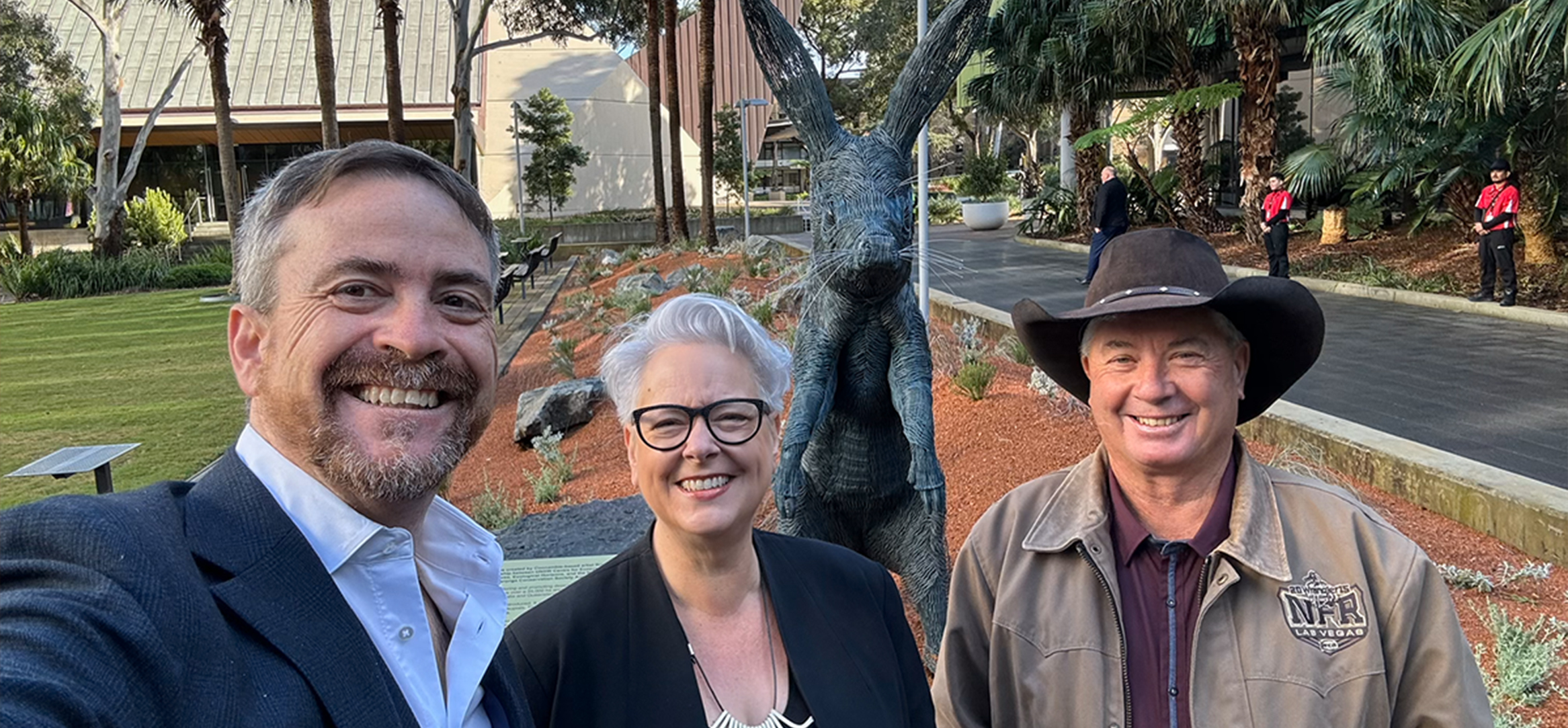
Last week, I had the pleasure of attending the unveiling of artist Brian Campbell’s impressive bilby sculpture in its new home on the Michael Birt Lawn. The sculpture celebrates the reintroduction of locally extinct mammals to Sturt National Park, as part of the Wild Deserts Project.
The sculpture is made from repurposed fencing wire used to create feral predator-free areas that allow locally extinct species like greater bilbies to be reintroduced to the area.
I was fortunate to visit the Wild Deserts site and field station in the national park, near Tibooburra, soon after I started as VC. It was inspiring to meet the researchers and see first-hand the positive impact of their work in reintroducing locally extinct species and restoring landscapes that were an important part of that ecosystem more than a century ago. I was struck that amid all the doom and gloom of environmental change, these scientists are having positive impacts on entire landscapes and making profound changes.
Brian’s sculpture captures the essence of Australia’s beloved bilby and helps us bring a bit of Wild Deserts to our Kensington campus. It also does what all good public art does and that is to make people think and reflect!
There’s even more Inside UNSW…
- Scientia Professor Mat Santamouris has been awarded the 2024 PLEA (Passive and Low Energy Architecture) Lifetime Award for his innovative work on urban heat mitigation. Congratulations Mat!
- Congratulations to the students recognised at the UNSW Indigenous Student Awards night on Thursday, 20 June.
- NAIDOC Week is being celebrated at The Lounge with live music featuring Indigenous artist Marcus Corowa, Indigenous dishes, an art installation and more.
- In another fascinating staff profile, we learn about Dr Andrew Clarke’s interesting path to becoming a sociologist with a research focus on homelessness and housing.
Best regards
Attila
Professor Attila Brungs
Vice-Chancellor and President
- Log in to post comments
